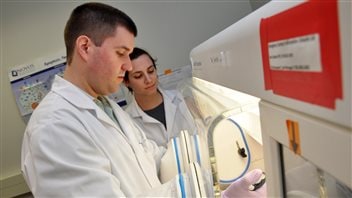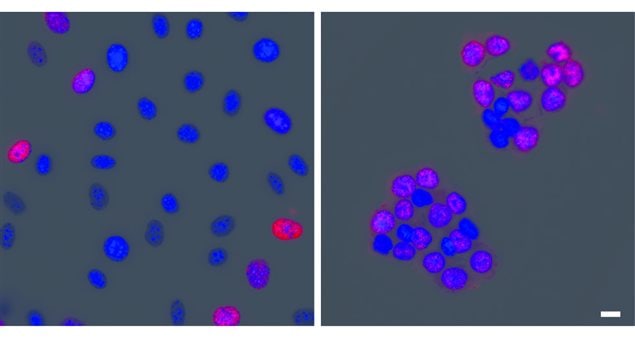It seems so obvious, yet somehow, it hasn’t been.
Anyone performing almost any kind of experiment knows that if you alter a variable just a tiny bit, you can, and likely will, alter the outcome.
This is true whether mixing paint, developing drugs, or studying treatments for disease.
Researchers from the University of Guelph in Ontario, have made a very simple but likely revolutionary discovery concerning oxygen. They found that scientists have been conducting biological experiments with human cells and reactions etc, at incorrect oxygen levels.
Jim Uniacke (PhD) of the Department of Molecular and Cellular Biology was supervising author of the research
Listen
The findings were published in the March 21 online issue of the Journal of Biological Chemistry under the title “Human Cells Cultured Under Physiological Oxygen Utilize Two Cap-binding Proteins to Recruit Distinct mRNAs for Translation” (paper version end May 2016)
The simple discovery was that research into everything from cell division, to studies of Parkinson’s, cancer research, drug development, and much more, may have to be rethought.
Professor Uniacke, and PhD student Sara Timpano, realized that during a biological experiment with cells, that they, like so many others were conducting the reaction of cells in conditions using “normal” body temperature, 37C and “normal” pH levels, and at atmospheric oxygen levels.
The trouble is, the air we breathe is about 21% oxygen. But therein lies a critical factor: 21 percent oxygen is not “normal” for cells inside the body.
“I think this puts into question a lot of findings, not only our group has put forward, but the entire scientific community” Uniacke
The critical finding is that what cells actually deal with in the body varies from about one percent to 12 percent oxygen level depending on the particular organ.
What professor Uniacke and the team were studying was how cells make proteins.
Scientists have long studied the process under “standard” lab conditions, and have developed an excellent understanding of it. This time the University of Guelph researchers decided just to also see what happens in reduced oxygen conditions. Surprisingly they found a new result from the “typical” expected one.
They found cells have a second method of protein production under these “actual” conditions. This led to the question of if something as basic as protein synthesis provides new and unexpected results under physiological oxygen conditions, perhaps so many other tests, experiments, and research findings of the past century might also be off, or have new aspects to be discovered.
While professor Uniacke himself is reluctant to use the word “revolutionary” in terms of this discovery, he is hopeful it will prompt other researchers to consider actual physiological oxygen levels as an important parameter in their research, and perhaps also to re-conduct other experiments and findings of the past while using this “new” physiological parameter.







For reasons beyond our control, and for an undetermined period of time, our comment section is now closed. However, our social networks remain open to your contributions.